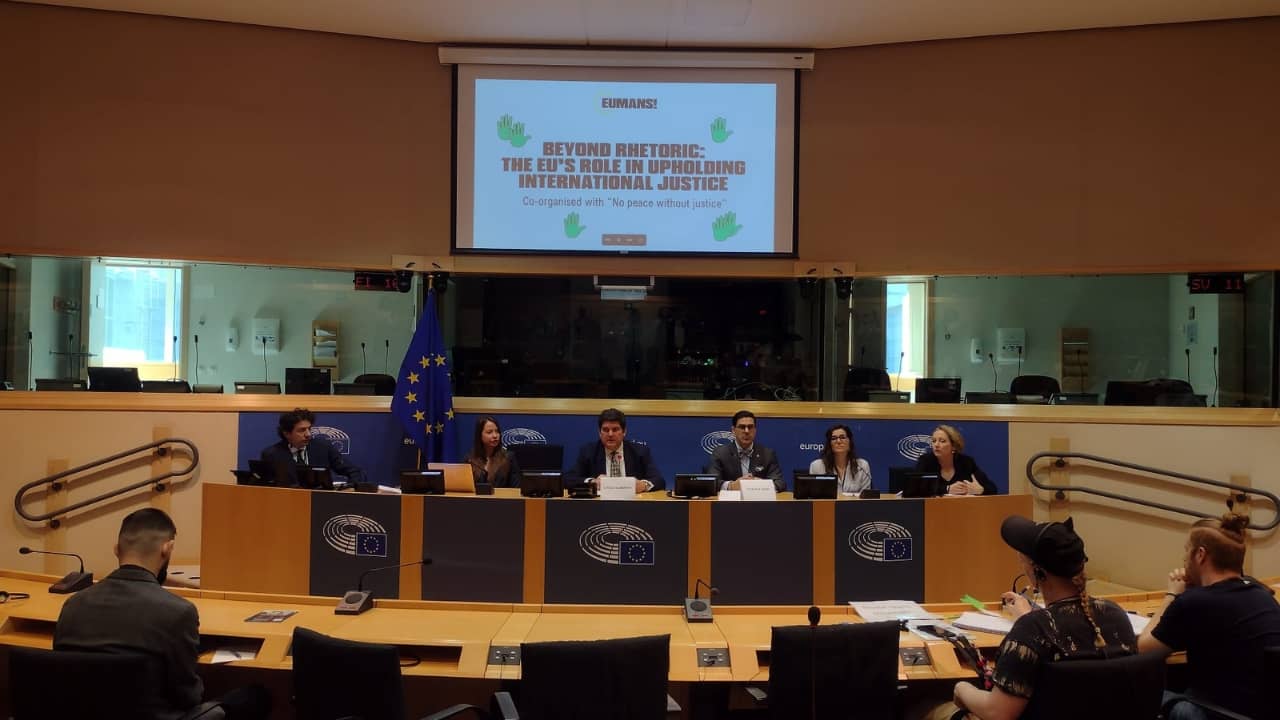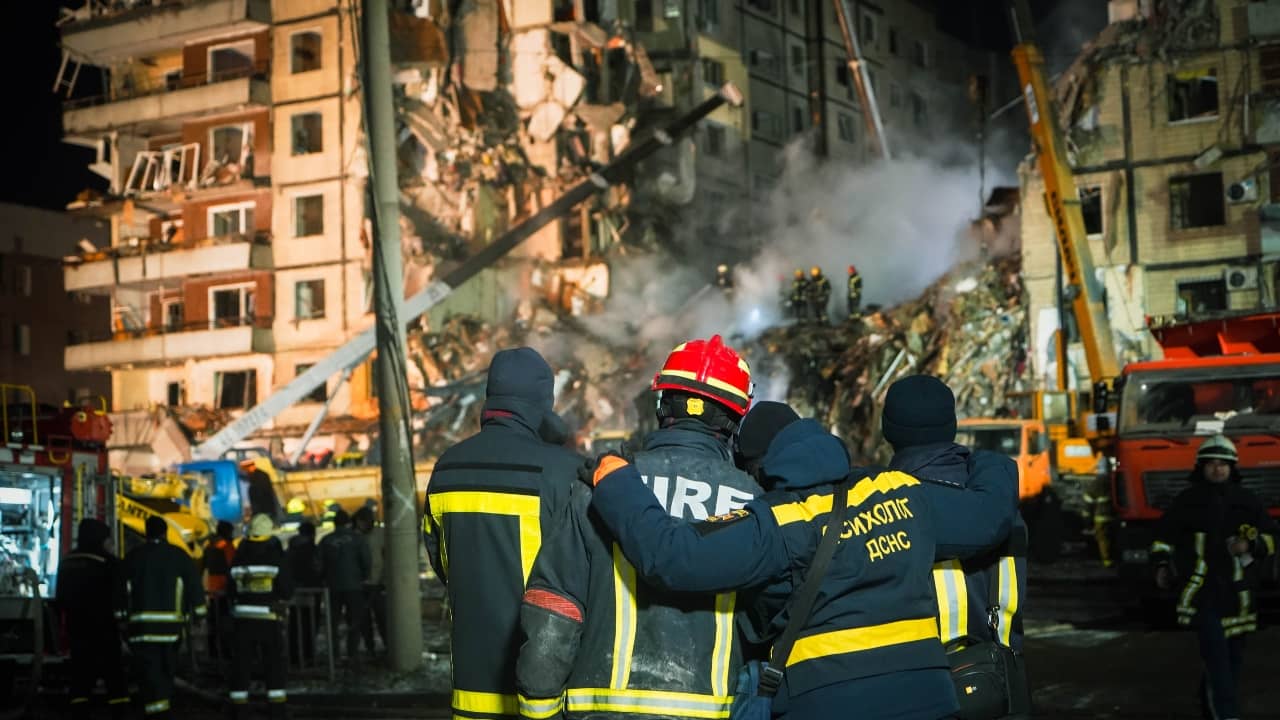Bangui/Stockholm/New York/The Hague
The electoral process that culminated in the Presidential and parliamentary elections in Central African Republic (CAR) on 27 December 2020 have been used by the four largest rebel groups, which had signed the peace-agreement of February 2019, to form a self-named (soi-disant) “Coalition of Patriots for Change (CPC)”, which launched a series of attacks in multiple areas of the country. The CPC has been reportedly created in response to the Constitutional Court’s decision on the ineligibility in the Presidential elections of former dictator and President Mr. François Bozizé, due to the fact that he is a fugitive from justice since 2014, when he was indicted for crimes against humanity by a CAR competent Tribunal pursuant to the dictates of the law on international crimes supported by the PGA CAR National Group since 2010.
As DW reported on 13 January 2020[1], according to Dr. Peter Knoope, senior research associate at Dutch international relations institute “Clingendael”, the rebels have regretfully gained a certain momentum in the last years. Dr. Knoope believes the recent elections triggered an uptick in violence because the 2019 peace deal put armed groups in a powerful position. But they worried they would lose this power after the election. The peace agreement had been strongly criticized by PGA Members and human rights’ groups as it promoted the incorporation of well-known “war lords” in the CAR military, hence discouraging the investigation and prosecution of atrocity-crimes falling under the jurisdiction of the Special Criminal Court of Bangui set up to adjudicate on war crimes and crimes against humanity.
By the date of the elections, media sources reported that approximately 40% of the electoral districts of the country had been attacked and occupied by the rebels, hence impeding the conduct of the elections on these territories.[2] The CPC continued its violent military campaign, in the face of which independent observers reported that the CAR Army failed to resist and derelict from its duties to protect the communities and populations. This serious institutional shortfall was harshly criticized by the Institute for Security Studies (ISS), an independent think-tank based in South Africa, which has called into question the entire model of intervention employed by the International Community in Central African Republic in the last decade, pointing out to a specific deficiency of the internationally-supported Security Sector Reform.[3]
On 13 January, the rebels tried to attack the capital City of Bangui, but the joint operations of MINUSCA – a UN peacekeeping mission consisting of 12,000 troops, including Special Forces from Portugal – and CAR security forces halted the invasion of the Capital by the CPC. In response, international NGOs denounced the immense sufferings and losses caused to civilian victims and communities in CAR, which are at the serious risk of suffering a new humanitarian disaster generated by the conflict, particularly if protracted violence and occupation restricted humanitarian access and left vulnerable populations without essential aid.[4] The UN and other sources indicated that 30,000 people have fled to neighboring countries and more than 60,000 have been internally displaced.[5]
Against the backdrop of this dramatic situation, which occurs at a time of a global pandemic in a country that is largely forgotten by world leaders and public attention, the President of Parliamentarians for Global Action (PGA), Ms. Margareta Cederfelt, MP (Sweden), stated:
The entire membership of PGA in 130 countries in all regions of the world strongly condemns the resumption of the armed conflict by rebel groups in CAR and expresses all its solidarity and support for the victims of this renewed wave of violence, namely the entire civilian population of CAR and, in particular, the communities living in the large areas occupied by rebel groups.
PGA calls upon all the relevant actors in the International Community, starting with the UN peacekeeping operation MINUSCA and the African Union, to address the root causes of the reckless resumption of violence in CAR aimed at disrupting the electoral process and unlawfully seizing power also for the purpose of exploiting the country’s natural resources, namely by:
- Strengthening the mandate of MINUSCA to ensure that adequate security forces are deployed to effectively stop the attacks of the former enemies that united their belligerent efforts in the CPC and liberate all occupied territories, hence following up on the effective operations conducted by MINUSCA (in particular via Special Forces of the Portuguese contingent) to protect the capital City of Bangui;
- Supporting all the democratic and accountable institutions of CAR, in a renewed effort of post-conflict peace-building, starting with the restructuring of the Security Sector Reforms and the re-organization of elections in the constituencies and districts in which rebels’ territorial control impeded the realization of genuine parliamentary elections;
- Support the enforcement of pending arrest warrants against fugitives from justice, including the execution of the warrant for crimes against humanity against Mr. François Bozizé, and reinforce the functioning of all relevant prosecutorial and judicial institutions at the international and domestic level, starting with the Special Criminal Court headquartered in Bangui[6];
- Provide immediate humanitarian relief and access to the victims of the armed conflict.
The global PGA network renews its heartfelt solidarity, vicinity and support to the Members of the PGA CAR National Group in the outgoing Parliament, who have fought relentlessly to advance peace, democracy, human rights and the rule of law, often expressing positions and views that were critical of the Government and international actors.
In 2018, “PGA Members in the Central-African National Assembly call[ed] on the international community to ensure peace-keeping efforts are strengthened and reformed”[7]. In 2018 and 2020 respectively, PGA Members led by Dep. Beatrice Epaye triggered the process of domestic ratification of the Biological Weapons Convention and adopted a pivotal law to enhance controls over the illegal flow of small arms and light weapons[8]. On several critical junctures, including in mid-2020, PGA CAR Members have expressed unconditional support for the fight against impunity and full cooperation of CAR institutions with the International Criminal Court (ICC)[9].
Speaking from her office in Bangui, PGA Board Member Dep. Beatrice Epaye, stated:
The National Assembly of the Central African Republic is ready to continue and intensify its work to fulfil our responsibility to protect our populations: Their human rights must be respected and fulfilled, and peace and justice must go hand-in-hand towards a genuine and durable resolution of the conflict that has victimized all our communities and led to so many losses of lives and dignity. We call upon the International Community to renew and improve its deployment of resources and forces in our country. The rebel groups do not have any local or political support in our communities, who are exploited by militias that are controlling territories as transnational criminal organizations.
[2] Cf. BBC, 7 Jan. 2020: “While voters turned out in force in Bangui and some other towns, militants launched a violent and disruptive campaign of intimidation elsewhere - burning ballot boxes, ransacking polling stations and preventing the vote in over 40% of electoral districts in this chronically unstable country.” Central African Republic: A disputed election and a strange rebel alliance - BBC News
[3]CAR elections expose the depth of the country’s crisis - ISS Africa also published by Reuters’ ReliefWeb services: CAR elections expose the depth of the country’s crisis - Central African Republic | ReliefWeb.
[4]Action Against Hunger Warns of Potential Food Emergency as Violence Rocks the Central African Republic Humanitarian access to people in need is impossible in many places | Financial Post.
[5]Central African Republic: Post-election violence triggers mass displacement | | UN News;
Central African Republic: MSF ramps up support amid violence | MSF;
[6] A PGA delegation made an official visit to the Special Criminal Court premises as early as in October 2018. PGA Members strongly supported the enactment into law of the Rules of Procedure of the SCC. As the BBC recently reported citing the position of Amnesty International and other human rights NGOs: “Ending impunity for abuses is regarded as key to CAR's sustainable peace. As part of efforts to bring war criminals to justice, a new tribunal in Bangui - known as the Special Criminal Court - promises to break new ground as the first UN-backed court founded in a country where fighting continues. Trials are yet to commence but, if successful, this institution could offer a new model of justice to other hotspots.” Central African Republic: A disputed election and a strange rebel alliance - BBC News.
[7]PGA Members in the Central-African National Assembly call on the international community to ensure peace-keeping efforts are strengthened and reformed - News and Activities (pgaction.org)




